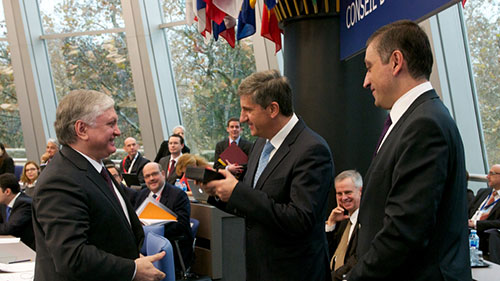Protocol No. 16 to the Convention for the Protection of Human Rights and Fundamental Freedoms was opened for signature by member states at a ceremony held today at the Council of Europe headquarters in Strasbourg.
This treaty was the result of work carried out on the reform of theEuropean Court of Human Rights. At the conferences held inInterlaken (2010), Izmir (2011) and Brighton (2012) the member States stressed the necessity of supplementary measures to ensure that the Convention system remained effective and could continue protecting the rights and freedoms of over 820 million people in Europe. They also reiterated that effective implementation of the Convention had to be based on the fundamental principle of subsidiarity: the States had to remedy violations effectively at national level. Accordingly, Protocol 16 allows the States Parties' highest courts to ask the Court for an advisory opinion on questions of principle relating to the interpretation or application of the Convention or its protocols relevant to cases before them.
Protocol 16 was signed at the ceremony today by the following states: Armenia, Finland, France, Italy, San Marino, Slovakia and Slovenia. It will enter into force once it has been ratified by ten States Parties to the Convention.




